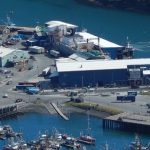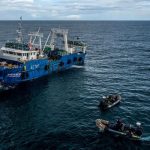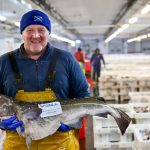According to the local source the waters off Tsugaru Peninsula in Aomori Prefecture are known as one of the nation’s prime tuna sites. It is said that the area is well known for the large number of fatty tuna that can be caught in winter–a period when tuna supplies traditionally tend to decrease worldwide. As the oil prices rises the number of fish caught on the high seas has declined.
Now the tuna fishermen have turned to offshore fishing sites for high-quality tuna. However, this has resulted in many conflicts, as longline boats have intruded into areas where only the rod-and-line method is permitted. There is no doubt that the demand of tuna fish is growing enormously day by day.
The main reasons of conflict have arisen in areas where longline fishing is banned to protect the traditional rod-and-line method. A prison term of up to one year or a fine of up to 500,000 yen can be imposed on repeated violators under the Fisheries Law. It was in August one of about 80 longline fishing boats was chased and surrounded by dozens of rod-and-line fishing boats belonging to a local co-op of the Tsugaru Peninsula.
Hajime Yanagitani, head of the Minmaya fishing co-op in Sotogahamamachi, a town on the Tsugaru Peninsula side of the prefecture, expressed deep concern over the issue, saying that if this situation continues, the rod-and-line method will become obsolete.” About 60 rod-and-line fishing boats belongs to the local co-op. The Aomori prefectural government has demanded that fishermen and others concerned comply with the rules.








